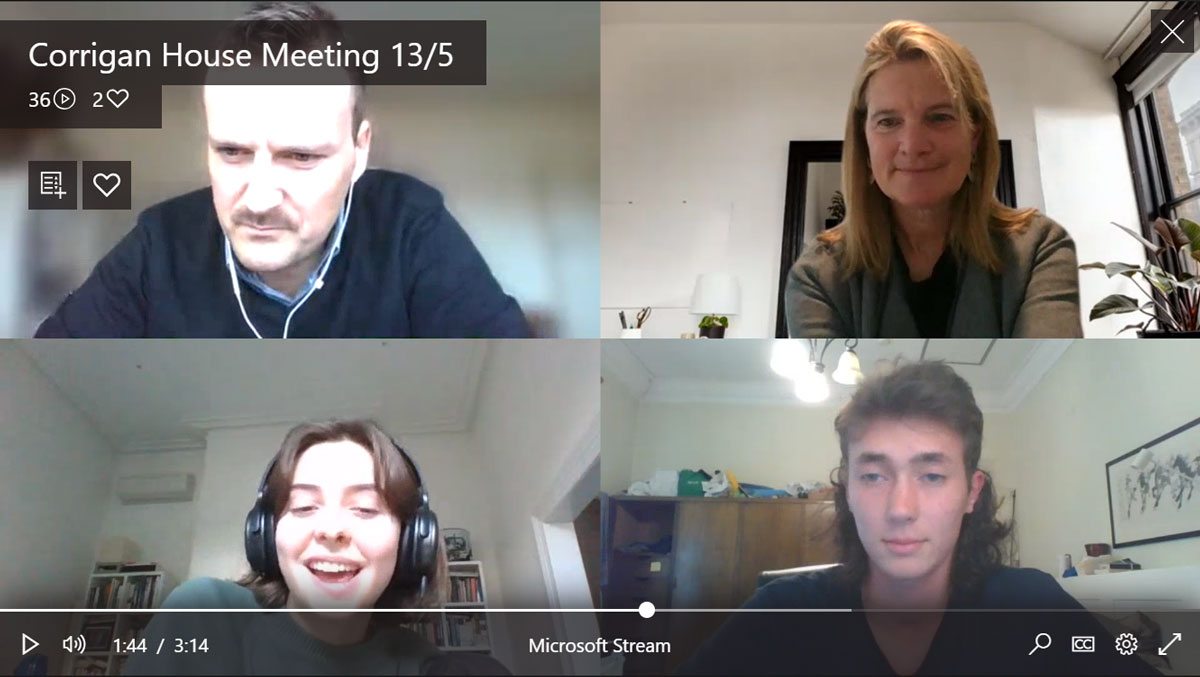
Learning and wellbeing are inextricably linked, both relying on healthy social connectedness to truly flourish, but is it possible to teach the skills of wellbeing in an online environment? The simple answer, says Kim Bence, is yes.
The public health measures currently in place to contain COVID-19 have caused significant disruption to schools worldwide and required students, teachers and parents to pivot, overnight and more than once.
With so much change this year, we may feel like we’re spinning, but we have adjusted to learning at home, connecting in virtual classrooms, but our goal is not simply to survive but thrive, and our focus as teachers and parents must also be on wellbeing: the wellbeing of our children, as well as ourselves. Is it possible to teach the skills of wellbeing in an online environment? The simple answer is yes.
Technology and connectedness
If you think our teachers and students need to be face-to-face in our classrooms for wellbeing practices and curriculum to be delivered effectively, research by John Palfrey and Urs Gasser shows that our students are actually adept at learning, loving, connecting and living online. Research by Alison Bryant and colleagues also shows that technology often enhances adolescent friendships by supplementing face-to-face interactions. In fact, technology has enabled young people to address wellbeing and identity, and support and connect with one another online in ways they may not be able to do in face-to-face situations.
Our students are not only using technology for information, gaming and social connection, but also to connect, inquire, learn about, improve and sustain their own wellbeing via chat rooms, wellbeing Apps, podcasts, support groups and online psychology and telehealth wellbeing forums. Many of these options are readily available via Wesley’s learning management system, WiSE, with specific links to wellbeing sites and College-approved reference points to support their mental health.
Our wellbeing programs and interventions are designed to be agile in order to cater for the emerging needs of our students as they learn to cope with the uncertainty, even confusion, associated with this pandemic. The focus of our programs is proactive prevention, teaching social-emotional skills and strategies to promote and develop positive mental health. Their design and delivery varies across campuses to cater for the different specific contexts. They are complemented by our Keeping in Touch (KiT) sessions, aligned across the College and designed to provide a point of connection for students additional to the positive mental health programs normally delivered in the classroom.
Emotions in the ‘new normal’
It’s important to remember that it’s normal for children to be experiencing periods of uncertainty, confusion, worry, isolation and disconnection in these challenging times. What many need right now is the comfort of knowing they are loved, appreciated, valued and connected – the essentials that the family unit can and must strive to provide to instil stability and certainty. Managing our own emotions as adults in this ever-changing landscape goes a long way to providing protective factors for our young people to continue to thrive rather than simply survive.
While the focus of our programs is proactive prevention not therapeutic intervention, we understand that supporting children and young adults involves much more. If parents are worried about their child’s learning or wellbeing, we encourage them to reach out to their child’s Homeroom Teacher if the child is in Prep to Year 6, Cluster Leader if Years 7 to 9 or Head of House if Years 10 to 12. Our Homeroom Teachers, Cluster Leaders and Heads of House know each child or young adult really well. They are here to listen, work with parents to support their enquiry and refer them if need be. Our School Counsellors and Psychologists across the College stand ready to address more serious concerns regarding any child’s mental health and parents are encouraged to contact their child’s Head of School in the first instance to ascertain if their concerns require this level of support.
I’m yet to locate a COVID-19 Parenting Handbook, but if I could find one, I hope its first piece of advice would be this: be kind to yourself. Trust your instincts, reach out for our support. This pandemic has forced us all to stop, refocus, reset, to use our own unique strengths and even recognise our frailties. Daring to share our experiences and vulnerabilities at this critical time can be helpful, not only for you but also those you love.
Kim Bence is Head of the St Kilda Road Campus
